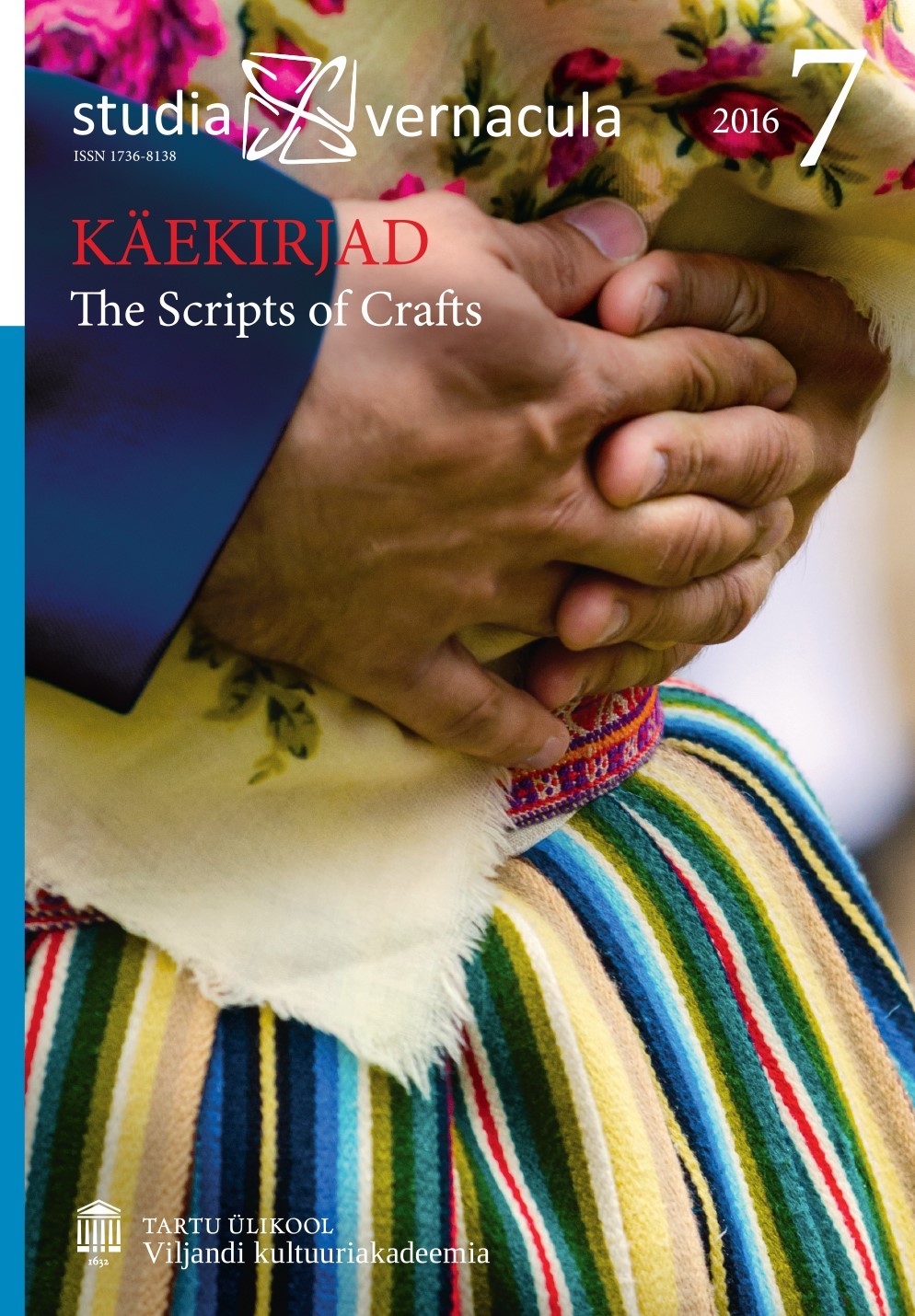Teadussündmus: Meil töö ja lõbu tasakaalus – viiendast rahvusvahelisest noorte folkloristide konverentsist „Folklore of Connections, Folklore of Conflicts“ / Balancing Work and Fun – the 5th International Young Folklorists’ Conference “Folklore or Connections, Folklore of Conflicts”
DOI:
https://doi.org/10.12697/sv.2016.7.222-229Abstract
The 5th international conference of young folklorists “Folklore of Connections, Folklore of Conflicts” took place from 7-9 October 2015. The conference series started out as a one-day event in Tartu as a cooperation venture between the Department of Estonian and Comparative Folklore and the Department of Ethnology at the University of Tartu in 2011. On the initiative of Lithuanian colleagues and the Institute of Lithuanian Literature and Folklore and in cooperation with the Department of Estonian and Comparative Folklore at the University of Tartu, the next conference was held in Vilnius as a two-day event with a wider audience of international participants. Since 2013, Tartu Nefa Rühm – an organisation that unites students of ethnology and folkloristics – has also taken part in the organisation of the conference. In 2015, the Estonian Crafts Department of the University of Tartu’s Viljandi Culture Academy joined the circle of organisers, and Viljandi became the meeting place for the young researchers.The young folklorists’ conference aims to improve academic communication, cooperation and research in the field of folkloristics, offering advanced students and recently graduated young researchers from different countries the possibility to present their research to an international audience. This time the youngsters had the chance to discuss their research themes, concentrating on how folklore helps forge contact or favours conflict. Folklore unites people and groups; it is used to create identities and cultural models. However, there are many examples from the past that show how folklore has been used as a tool to draw (and redraw) boundaries.
In addition to the experiences that the young scientists gained as presenters, organisers of panels or moderators, everyone had the chance to learn from renowned guest speakers William Westerman (USA) and Alexander Panchenko (Russia).
Downloads
Download data is not yet available.
Downloads
Published
2016-11-04
Issue
Section
Notes, Reviews and Current Activities

